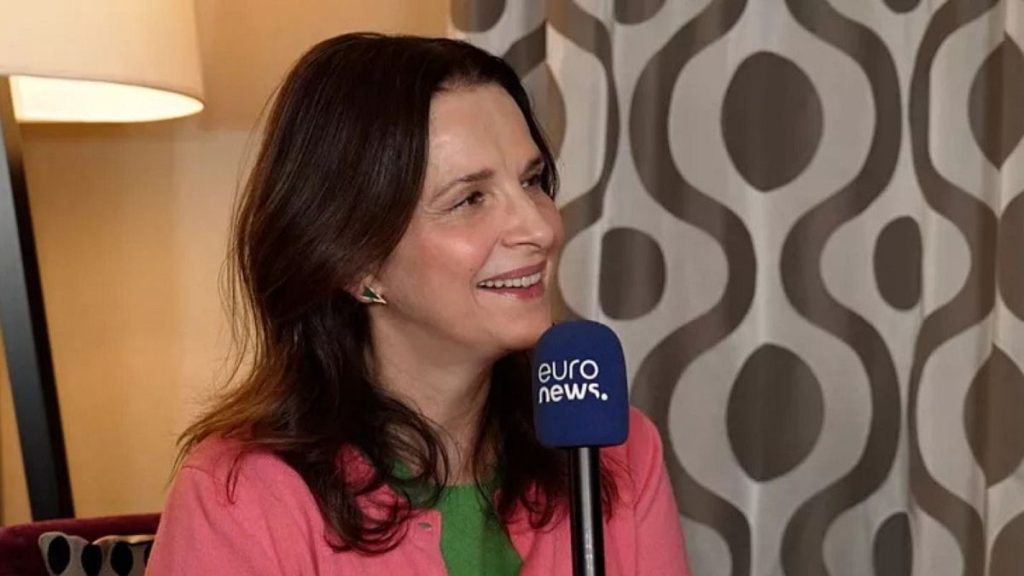Juliette Binoche, the acclaimed French actress, has been appointed President of the Jury for the 78th Cannes Film Festival, scheduled for May 2025. This prestigious role marks a significant moment in the festival’s history, as it represents only the second time a female jury president will succeed another, mirroring the 1966 handover from Olivia de Havilland to Sophia Loren. Binoche’s selection carries particular resonance for the actress, as it arrives precisely four decades after her debut appearance at Cannes in 1985 with André Téchiné’s Palme d’Or nominated film, Rendez-vous. This film served as a launchpad for the then 21-year-old Binoche, who has often described herself as being "born at Cannes." Expressing her anticipation and humility, Binoche acknowledges the privilege and responsibility that accompanies this significant appointment, eagerly anticipating the shared experience with the jury members and the festival audience.
Binoche’s history with Cannes extends far beyond her initial appearance. Over the years, she has graced the Croisette with her presence in seven other Palme d’Or contending films. These include Michael Haneke’s Code Unknown (2000) and Caché (2007), Abbas Kiarostami’s Certified Copy (2010), which earned her the Best Actress award, David Cronenberg’s Cosmopolis (2012), Olivier Assayas’ Sils Maria (2014), Bruno Dumont’s Slack Bay (2016), and Tran Anh Hùng’s The Taste Of Things (2023). This extensive involvement with Cannes highlights her enduring relationship with the festival and underscores her significance within the world of cinema.
Her illustrious career spans collaborations with renowned directors such as Jean-Luc Godard (Hail Mary), Krzysztof Kieślowski (the Three Colors trilogy), Anthony Minghella (The English Patient, Breaking and Entering), and Claire Denis (High Life, Both Sides of the Blade), solidifying her status as a highly sought-after actress. Binoche’s talent has garnered her numerous accolades, most notably achieving the "European Triple Crown" – winning a Golden Bear in Berlin (The English Patient), a Palme d’Or in Cannes (Certified Copy) and a Volpi Cup in Venice (Three Colors: Blue). This remarkable achievement underscores her versatile acting prowess and her ability to captivate audiences across diverse cinematic landscapes.
The Cannes Film Festival, in its official announcement, praised Binoche’s acting style, emphasizing her preference for emotional truth and the raw energy of the moment over mere technical virtuosity. Quoting Louis Malle’s observation after Damage, the festival highlighted Binoche’s "love affair with the camera, and her stupefying presence and intensity." This captures the essence of her captivating performances, which resonate deeply with viewers. Beyond her artistic contributions, Binoche has also been recognized for her commitment to social and environmental causes. She has actively championed issues such as education, human rights, and ecological awareness, further demonstrating her multifaceted persona and her dedication to making a positive impact beyond the realm of cinema.
Binoche’s commitment to the world of film extends to her recent appointment as President of the European Film Academy. In a recent interview with Euronews Culture, she emphasized the importance of discerning film selection, urging viewers to choose films that resonate deeply and have the potential to inspire personal transformation. This insightful perspective underscores her belief in the power of cinema to provoke thought, spark dialogue, and ultimately, effect change. Her presidency at the European Film Academy reflects her dedication to promoting European cinema and fostering a vibrant and engaging film culture.
As the 78th Cannes Film Festival approaches, the anticipation surrounding Juliette Binoche’s presidency continues to grow. Her extensive experience as an actress, her profound connection with the festival, and her unwavering commitment to social and environmental causes make her a compelling and inspiring figure to lead the jury. Her presence promises to enrich the festival experience and further solidify Cannes’ reputation as a platform for celebrating cinematic excellence and fostering critical conversations about the art of filmmaking.














